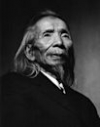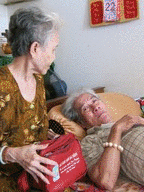03:48 EDT SATurday, 27/04/2024
•Menu
•Top News
-
 In Memory of Singer Nhật Sơn
In Memory of Singer Nhật Sơn
-
 Gia Bao revealed the reason behind Minh Canh’s invitation to participate in Vietnamese talent promotion
Gia Bao revealed the reason behind Minh Canh’s invitation to participate in Vietnamese talent promotion
-
 “First famous vocalist” Minh Canh 86 years old: How is your health and voice?
“First famous vocalist” Minh Canh 86 years old: How is your health and voice?
- Japanese artist: Why are Vietnamese people so kind and beautiful?
-
 Artist Minh Canh suddenly has a second live show
Artist Minh Canh suddenly has a second live show
-
 After Decades Under the Bed, a 1974 Vietnamese Film Finds an Audience Online
After Decades Under the Bed, a 1974 Vietnamese Film Finds an Audience Online
-
 Artist Kieu Phuong Loan is surprised to see her image 35 years ago
Artist Kieu Phuong Loan is surprised to see her image 35 years ago
- 5.000 Vietnamese studying in France: What's new in visa and scholarship policies in 2024?
-
 Doan Minh Tai looks like a gentleman, wearing a Mon Amie suit
Doan Minh Tai looks like a gentleman, wearing a Mon Amie suit
-
 Annual Book Street Festival 2024 on Tet holiday to open on February 7
Annual Book Street Festival 2024 on Tet holiday to open on February 7
•Random News
•Counter
![]() Online :
9
Online :
9
![]() Today :
95
Today :
95
![]() This month
: 88789
This month
: 88789
![]() Total : 2632736
Total : 2632736
 »
News
»
Idols
»
News
»
Idols

Vietnam's banh mi named world's most delicious sandwich
ietnamese banh mi (baguette) has been ranked first in the list of the top 100 sandwiches in the world by international food website Taste Atlas.
Actress Bich Hanh’s biography and memories
Posted at: TUEsday - 17/03/2015 03:56 - Viewed: 4906
Actress Bich Hanh’s biography and memories
Bich Hanh’s anguish of not being able to sing is also shared by her many colleagues. The heart-break of seeing “the cai luong stage is being destroyed by a storm” is the end of anyone’s hopes!
When Bich Hanh was a little girl at the age of 11, she loved to sing so much. She even dreamed of singing in her sleep, and at school, she would imitate other actresses’ songs and pretend that she was performing on stage. Her teachers and classmates called her “a little Vietnamese opera singer”. Then she got a chance to play the part of a little girl in “Ben cau vong the” (Looking for a wife by the bridge) by composer Ngoc Van. At that time, the troupe had such actors/actresses as Kim Chung, Bich Hop, Thuy Lieu, Tuy Dinh, Hue Chuc, Dieu Hien, Hung Cuong, Kim Nguyen, Hoang Long, Quang Huu, Ngoc Toan, Sy Toan, Minh Canh, comedian Phuc Lai, Tu Vung, Ba Hoi… While rehearsing for a new play, composer Ngoc Van realized he needed a role of a little girl. Suddenly, he saw Bich Hanh and asked her:
- Can you sing?
- Yes, of course! Bich Hanh answered happily.
That was how Bich Hanh got the part of Mong Diep (a little girl), a younger sister of Hong Diep (played by Kim Chung). But she was not assigned any singing part in the play. Instead, all she did was walk back and forth on the stage in a role of a little girl who was from the countryside and came to the city to look for her older sister. It was because composer Ngoc Van thought that Bich Hanh still spoke with a Northern accent, so she would not be able to sing “cai luong”, which required a Southern accent.
After that the Kim Chung troupe rehearsed a new play “Dac Ky Tru Vuong”. Bich Hanh took the part of An Giao, and this time she could perform on stage but, again, no singing part. Mr. Long, the owner of this troupe, was satisfied with Bich Hanh’s singing, so he asked composer Ngoc Van and Bich Hanh to come to see him and said:
- This little girl sings well, so please write a “vong co” verse for her.
- No, it is not good to sing a “vong co” song with the Northern accent. She cannot do it now. Composer Ngoc Van disagreed.
Mr. Long was quiet after hearing that, but Bich Hanh begged:
- I can sing. Please write a “vong co” verse for me, sir!
Although Bich Hanh was crying and begging, composer Ngoc Van still shook his head and refused. Bich Hanh was so sad, so disappointed that she was determined to learn how to sing “vong co”. She asked her parents to let her take lessions with musician Bay Trach.
(Twenty years later, in 1984, composer Ngoc Van had a play for the television. He went to Bich Hanh’s house to invite her to take the leading role in his play. Although Bich Hanh was free at that time, she completely refused to work with him regardless of how much Ngoc Van tried to talk her into accepting the part. After composer Ngoc Van left, all her family members felt astonished and did not understand why she refused such a good part on television which many other actresses wished to have. Up to now, Ngoc Van still does not know the real reason behind Bich Hanh’s refusal. The more passion for the stage she had, the deeper the grudge she bore. It was the resentment of not given a chance to sing “vong co” in the part of An Giao 20 years ago, which still stays with her until now, 20 years later, that made her more determined than ever, to try harder, and to become the best she could be.)
After practicing for a long time, Bich Hanh could sing some traditional songs including “vong co”. She came back to Kim Chung 1 and took the part of a little girl in “Dac Ky Tru Vuong”, then the part of the young prince Tat Dat Ta in “Phat thich ca dac dao” (Thich Ca Buddha reached nirvana). At that time, the troupe had a new little boy named Minh Vung (the real name of the now-famous Minh Vuong). Minh Vuong was considered to be more suitable for the part of the prince Tat Dat Ta, so the troupe leader named Quang Huu told Bich Hanh:
- Let Minh Vuong take the part of the prince tomorrow, Hanh. Later, the two of you can take turn in playing this part.
- Yes.
During that night, Bich Hanh could not sleep. She cried so much that her eyes became swollen. The next day Bich Hanh came to the backstage to see Minh Vuong sing. After finishing two acts, Minh Vuong came to Bich Hanh and tried to make friends with her, but Bich Hanh said to him angrily:
- I do not want to talk with you as you have stolen my part in the play. Then she bursted into tears.
Minh Vuong had to beg her to stop crying, but the more he lowered his voice, the higher Bich Hanh raised hers. Minh Vuong was very polite while Bich Hanh was so rude to him. Fortunately, they made up, became friends in the end and shared that one part. A short time later, Minh Vuong got ill and had to stay home in province #8. Bich Hanh often cycled across the Y bridge to see Minh Vuong.
After having recovered from his illness, Minh Vuong, unfortunately, lost his voice and thus could not sing, so he had to stay at home for a long time. In 1968, Minh Vuong regained his voice and worked for Kim Chung 8 where Bich Hanh was the main and most important actress, so Minh Vuong became the supporting actor. Together they went to Laos, Thailand and France to perform. In 1972, they worked together again on Kim Chung 5 stage where Minh Phung and Le Thuy played the leading roles, and Minh Vuong, Kieu Tien and Bich Hanh were supporting actors. They often recalled their old memories – Minh Vuong smiled gently but Bich Hanh felt sorry for her impolite attitude toward her friend at the beginning.
In 1969, Bich Hanh moved to Kim Chung 2 to sing with My Chau, Phuong Binh, Quoc Tram, Phuong Dung, To Kieu Lan, Ngoc An, Minh Sang, comedian Chon Tam… She took the parts of Diep Thuy Oanh (Tam su loai chim bien), Ha Dung (Kiem si Doi), Hanh (Tinh Thien Thu). At that time, Bich Hanh’s and My Chau’s mothers were close friends at Kim Chung 2. My Chau saw Bich Hanh’s potential and wanted to help Bich Hanh advance her career, so she asked Bich Hanh:
- Would you like to record albums?
- Yes, very much. Bich Hanh smiled and answered happily.
- OK. After finishing my performance in central Vietnam, I will introduce you to sing at the Vietnam recording company.
Bich Hanh was very happy with this promise, but she was not sure if My Chau really meant it. She was worried that My Chau might forget when she returned from her trip.
However, My Chau did not break her promise. She took Bich Hanh to the recording company, and Bich Hanh was accepted. After returning home, Bich Hanh was anxiously waiting for the company to call her. She waited for so long but there was no call. Then the situation became more desperate when she learned that another actress, who was introduced later than she, released her own albums. My Chau was so furious. She wanted to find out why the recording company did not contact Bich Hanh. When she learned of the reason, she called Bich Hanh and said:
- I know why they did not call you. Now if you want to record, you must give them $200,000 VND upfront.
Bich Hanh’s face slowly turned green as $200,000 VND was equivalent to 10 ounces of gold, not a small sum of money. She cried:
- I want to record, but I am too poor to have that much money.
- It is okay. I will lend you the money, My Chau said.
When the money was given to the recording company, Bich Hanh was invited to record her album. Within one week, she recorded 10 songs in a row, and after her album was released, she became famous. This would not have happened if it had not been for My Chau’s help and kindness. Bich Hanh then signed a 3-year contract with the recording company. They paid her $250,000 VND, but she had to split it with the program manager. In addition, she had to share half of the profit with him from all of the records that they sold. This type of unwritten and rip-off conditions did not happen to the well-known singers such as Minh Canh, Le Thuy, My Chau, Minh Phung, Minh Vuong, Thanh Tuan, Chi Tam… but only to the new and aspiring artists. Bich Hanh found it difficult to forget this unfair practice. One cannot help but wonders if this type of exploitation is still happening to the young and aspiring artists nowadays.
Before 1975, Bich Hanh only sang on the stages of Kim Chung troupes. After 1975, she sang for nearly 20 other theatre troupes from the central Vietnam to the Me Kong delta, where she was recognized in a wide range of roles. In 1985, Bich Hanh competed in the SKCNTQ contest and won the silver medal for the role of Man in “Trong con giong to” (Being in the storm). And in 1990, she returned to the city to work for the Saigon 2 troupe, she again went for the SKCNTQ contest and this time won the gold medal for the role of Tran Ngu Nuong in “Ngu Nuong Tuong Soai”.
One might think that with all of her theatrical experiences, it would be enough to equip her on the way to success. Unfortunately, Bich Hanh and many of her talented colleagues could not find work due to the difficult time as many theatre troupes no longer perform, and their singers have to resort to recording audios or videos to make a living. They also have to sing at musical variety shows, some clubs or cafe’. In many places they do not get paid and have to rely on tips to survive. Sadly, some nights, they do not even make enough money for a taxi fare and have to walk home in their tears. The customers do not seem to respect and value the singers anymore, and some even make advances toward them. It is such a disgrace and so pitiful to make a living as singers at these clubs and cafe’!
Many singers like Bich Hanh felt so humiliated and asked for help to save their honor from the struggle to earn a living. Who is responsible for such problems? Sad to say some singers go along with the customers’ advances to get as much money as possible. And in doing so, they inadvertently encourage their colleagues to follow their immoral behaviors. Even if they use the money to give away to charities, they could not erase the disgrace and bring back the good reputation of the cai luong arts. Many singers express their anguish, wish to get away from the bad atmostphere, and have a chance to sing on stages like they used to. Why can’t that be accomplished?
Brief introduction of Bich Hanh’s 40 years on stage
Bich Hanh’s real name is Vu Thi Hanh. She was born in 1953 in Hai Phong, north Vietnam. One year later, her parents took her to join Kim Chung and moved to the South. Bich Hanh is the daughter of Mr. Vu Dinh Vinh and Mrs. Nguyen Thi Mai. Mr. Vinh was a modern-music drummer for the Kim Chung troupe, and later became the manager of Kim Chung. Her mother died in 1993. She has 3 sisters and 2 brothers. Her eldest sister was actress Kieu My who was very famous on cai luong stage and was the wife of Minh Canh, a very well-known actor. Kieu My died in 1986 and left behind 5 children. Bich Hanh took over her sister’s place and raised the children until they all became adults. Among them Kieu Nhi (a girl) and Canh Son (a boy) became singers at musical variety shows (organized by Duy Ngoc). Bich Hanh’s brothers, Vu Dinh Nam and Vu Quoc Dinh, work for the city. The youngest sister, actress Vu Thi Bich Lien, once sang for the Cao Van Lau (Minh Hai) troupe. Bich Hanh gets married to Le Van Diep, a worker, and has a son named Le Huy.
Bich Hanh played the role of a young girl on Kim Chung stage in the Aristo cinema in such plays as Tinh Chang Y Thiep (Your love and my idea), Phat Thich Ca dac dao (Thich Ca Buddha reached nirvana), Pham Cong Cuc Hoa, Sam Set (Thunder and lightning), Luong Son Ba Chuc Anh Dai, Chi Mot Dem Chan Goi (Only one-night stand), Phu Kieu Truong Han… Bich Hanh was paid only $20 VND per show by the show owner Long. This amount was far less compared to what she actually got from the audience. As a form of reward for her excellent performance, the audience would wrap $200 VND, $300 or even $500 in the paper fans and threw them onto the stage.
In 1967, Bich Hanh was 14 and unsuitable for the young girl’s roles, so she stopped singing and went back to school for two years. In the end of 1968, she came back to Kim Chung 8 stage to sing with Tan Tai, Minh Phung, Ut Tra On, comedian Van Huong, Kim Chung, Ngoc Bich, Nhu Ngoc, Trang Kim Sa… She took the parts of To Anh Tuyet (Manh Le Quan), Ngoc Mai (Mat Em La Be Oan Cuu – Your eyes are full of resentment and deep hatred), Tieu Tho (Chuyen Do Thuong – Boat of love), To Tam (Luong Son Ba, Chuc Anh Dai). While singing for this troupe, Bich Hanh had a chance to perform abroad such as Laos, Thailand and France.
In 1969, Bich Hanh moved to Kim Chung 2 to sing with My Chau, Phuong Binh, Quoc Tram, Phuong Dung, To Kieu Lan, Ngoc An, Minh Sang, comedian Chon Tam… She took such parts as Diep Thuy Oanh (Tam Su Loai Chim Bien), Ha Dung (Kiem Si Doi), Hanh (Tinh Thien Thu), Diem Huyen (Nu Hiep An May) and appeared in some drama as Cuon Theo Chieu Gio (Gone with the wind), 18 Nam Truong Han (18 years of grudges), Nhat Kiem Ba Vuong… One year later, Kim Chung company reorganized its staff, so they sent Bich Hanh to Kim Chung 5 to sing with Minh Phung, Le Thuy, Thanh Kim Hue, Kieu Tien, Thanh Dien, Chi Tam, Thanh Tuan, An Danh… Bich Hanh sang on this stage until 1975 and was in plays such as Hac Sa Thon Huyet Han, Tay Thi, Chieu Quan Cong Ho, Phan Le Hue, Xin Mot Lan Yeu Nhau, Mua Xuan Ngu Trong Dem, Giai Nhan Ben Suoi Bac, Ke Ben Troi, Nguoi Ve Dem Bao Tuyet, Mua Thu Tren Bach Ma Son, etc.
In the middle of the year 1975, Bich Hanh moved to Minh Canh theatre troupe (Binh Duong) which had many well-known actors/ actresses as Minh Canh, Le Thuy, My Chau, Bich Hanh, Chi Tam, Vuong Minh Lam, Duc Loi, Kim Phuong, Truong Mong Ngoc, Minh Canh Em… Although she worked here only for a few months, she acted in many familiar plays once performed on Kim Chung stage such as Manh Ao Que Ngheo, Tam Su Loai Chim Bien, Kiem Si Doi, Loi Tho Tren Tuyet, Bong Ma Trong Co Mieu (Ghost in the old temple), Mau Nhuom San Chua, Mua Xuan ngu trong dem...
In the end of the year 1975, Bich Hanh moved to Huong Mua Thu (Autumn Flavor) stage to sing with Ngoc Huong, Kieu Tien, Yen Nhung, Kieu Le Thanh (Binh Trang), Ngoc Lan, Minh Phung, Hoai Thanh, Phuong Thanh, Hieu Liem, Thanh Liem, comedian Tau Tau, Minh Dich… She worked here for two years and took the parts in Ganh Co Song Han, Con Co Trang, Nguoi Dep Chuc Son, Lua Phi Truong, Diep Khuc Huong Cau.
After that Bich Hanh stopped singing for two years. Then she came back to the stage in 1979 and traveled to remote locations to perform. She sometimes sang at temples or stayed with a troupe for a long time depending on her contracts. During these two years, she worked for Huong Da Ly (owner Liem), Long Giang (Thanh Tai), Da Ly Huong (Song Be province), Lua Vang (Dong Thap).
In early 1981, Cao Van Lau troupe invited Bich Hanh to sing with Nhu Loan, Huong Chung Thuy, Bich Lien, Yen Huong, Thanh Tam, Chieu Binh, Tuan Hai, Phuong Hung, Giang Tuan, Trong Linh, comedian Oc, Xia… Bich Hanh became widely known for parts in Rung Than, Son Tinh Thuy Tinh, Vang Trang Dem Ly Biet, Tinh Su Thien Va Na, To Anh Nguyet, etc.
In 1983, she moved to Hau Giang 2 troupe. She kept her fame in leading roles as Ngoc An Rung Thieng, Quan Chua Quynh Giao, Tam Cam, Trong Con Giong Bao, Quan Chua A Na, San Chua Dam Mau, Dua Con Mang Ho Me…
Departing the Hau Giang troupe, Bich Hanh joined Cao Nguyen troupe in 1985 with Tuan Kiet (Chau Thanh), Tuan Anh, Vuong Long, Luu Kinh, Ngoc Huyen, Ngoc My, Le Thu, Mai Hoa… She sang on this stage for a year with the parts in Bach Vien Ton Cac, Xuan Ve Tren Dinh Ma Phi, Mai Toc Nguoi Vo Tre, 17 Nam Truong Han, Suoi Trang Rung Thieng…
In four years, 1986–1990, actress Bich Hanh worked for the following troupes: Cao Su, Kien Giang (Trong Huu), Hoa Phuong, Chau Long, Tan Thu Do…
In 1990, Bich Hanh was invited to sing at Sai Gon 2 to replace My Chau who had left earlier. She took the parts in Ngu Nuong Tuong Soai, Neu Em La Hoang De, Nang Am Ngoai O, Bac Trang Tim Hong. 1990 was the year when the national professional acting festival was held; she participated in the festival with the part of Tran Ngu Nuong in “Ngu Nuong Tuong Soai” and won the gold medal. During the next two years, Sai Gon 2 became a very strong and profitable troupe that performed in remote areas, especially in cities in central Vietnam. Due to ill-skilled management, the troupe had to be closed down in 1992, which caused big disappointment among its members and fans who gave it so much love for over 17 years.
Actress Bich Hanh then sang for Sai Gon 1 for only one month in 1993, and then she has been staying at home ever since. Once in a while, she sings at some musical variety shows; the rest of the time, she records “cai luong” videos. She has appeared on many videos such as Loi Tho Tren Tuyet, Dai Phat Tai, Nang Thu Ve Ngo Truc, Toi Khong Lam Hoang Hau, Vo Dong So Bach Thu Ha, Khuc Hat Doan Tinh… She has recorded about 50 songs and plays. In addition, she sang about 70 “vong co” songs on Viet Nam 2 and Ho Chi Minh City radio stations, some of which are so popular to the listeners that they request to have them re-played over and over again.
Chronological order of Bich Hanh’s career
1969 – Kim Chung 2 troupe
1972 – Kim Chung 5 troupe
1975 – Huong Mua Thu troupe (Thu An)
1976 – Minh Canh theatre troupe (Song Be)
1978 – Binh Minh-Long Giang troupe (Sau No), Da Ly Huong troupe (Tu Tram)
1979 – Song Be 2 troupe (Ngoc Sinh) – “Cai luong” Cao Su troupe
1980 – Lua Vang troupe (Bay Cao)
1981 – Cao Van Lau troupe (He Oc)
1983 – Cao Nguyen troupe (owner Tram)
1984 – Hau Giang 2 troupe (Hoang Thai Hung)
1985 – Won the silver medal at national profession acting festival in Thanh Hoa
1986 – Kien Giang people troupe
1987 – Song Tra – Quang Ngai troupe
1988 – Vung Tau 2 troupe
1989 – Song Hau 2 troupe
1990 – Sai Gon 2 troupe; won the gold medal at national professional acting festival
1994 – Sai Gon 1 troupe
1995 – Chau Long-An Giang troupe
1996 – Tieng Chuong Vang troupe (Minh Phung)
Source: dannyboyez – BSK
Translated by onlyyou – lekt
When Bich Hanh was a little girl at the age of 11, she loved to sing so much. She even dreamed of singing in her sleep, and at school, she would imitate other actresses’ songs and pretend that she was performing on stage. Her teachers and classmates called her “a little Vietnamese opera singer”. Then she got a chance to play the part of a little girl in “Ben cau vong the” (Looking for a wife by the bridge) by composer Ngoc Van. At that time, the troupe had such actors/actresses as Kim Chung, Bich Hop, Thuy Lieu, Tuy Dinh, Hue Chuc, Dieu Hien, Hung Cuong, Kim Nguyen, Hoang Long, Quang Huu, Ngoc Toan, Sy Toan, Minh Canh, comedian Phuc Lai, Tu Vung, Ba Hoi… While rehearsing for a new play, composer Ngoc Van realized he needed a role of a little girl. Suddenly, he saw Bich Hanh and asked her:
- Can you sing?
- Yes, of course! Bich Hanh answered happily.
That was how Bich Hanh got the part of Mong Diep (a little girl), a younger sister of Hong Diep (played by Kim Chung). But she was not assigned any singing part in the play. Instead, all she did was walk back and forth on the stage in a role of a little girl who was from the countryside and came to the city to look for her older sister. It was because composer Ngoc Van thought that Bich Hanh still spoke with a Northern accent, so she would not be able to sing “cai luong”, which required a Southern accent.
After that the Kim Chung troupe rehearsed a new play “Dac Ky Tru Vuong”. Bich Hanh took the part of An Giao, and this time she could perform on stage but, again, no singing part. Mr. Long, the owner of this troupe, was satisfied with Bich Hanh’s singing, so he asked composer Ngoc Van and Bich Hanh to come to see him and said:
- This little girl sings well, so please write a “vong co” verse for her.
- No, it is not good to sing a “vong co” song with the Northern accent. She cannot do it now. Composer Ngoc Van disagreed.
Mr. Long was quiet after hearing that, but Bich Hanh begged:
- I can sing. Please write a “vong co” verse for me, sir!
Although Bich Hanh was crying and begging, composer Ngoc Van still shook his head and refused. Bich Hanh was so sad, so disappointed that she was determined to learn how to sing “vong co”. She asked her parents to let her take lessions with musician Bay Trach.
(Twenty years later, in 1984, composer Ngoc Van had a play for the television. He went to Bich Hanh’s house to invite her to take the leading role in his play. Although Bich Hanh was free at that time, she completely refused to work with him regardless of how much Ngoc Van tried to talk her into accepting the part. After composer Ngoc Van left, all her family members felt astonished and did not understand why she refused such a good part on television which many other actresses wished to have. Up to now, Ngoc Van still does not know the real reason behind Bich Hanh’s refusal. The more passion for the stage she had, the deeper the grudge she bore. It was the resentment of not given a chance to sing “vong co” in the part of An Giao 20 years ago, which still stays with her until now, 20 years later, that made her more determined than ever, to try harder, and to become the best she could be.)
After practicing for a long time, Bich Hanh could sing some traditional songs including “vong co”. She came back to Kim Chung 1 and took the part of a little girl in “Dac Ky Tru Vuong”, then the part of the young prince Tat Dat Ta in “Phat thich ca dac dao” (Thich Ca Buddha reached nirvana). At that time, the troupe had a new little boy named Minh Vung (the real name of the now-famous Minh Vuong). Minh Vuong was considered to be more suitable for the part of the prince Tat Dat Ta, so the troupe leader named Quang Huu told Bich Hanh:
- Let Minh Vuong take the part of the prince tomorrow, Hanh. Later, the two of you can take turn in playing this part.
- Yes.
During that night, Bich Hanh could not sleep. She cried so much that her eyes became swollen. The next day Bich Hanh came to the backstage to see Minh Vuong sing. After finishing two acts, Minh Vuong came to Bich Hanh and tried to make friends with her, but Bich Hanh said to him angrily:
- I do not want to talk with you as you have stolen my part in the play. Then she bursted into tears.
Minh Vuong had to beg her to stop crying, but the more he lowered his voice, the higher Bich Hanh raised hers. Minh Vuong was very polite while Bich Hanh was so rude to him. Fortunately, they made up, became friends in the end and shared that one part. A short time later, Minh Vuong got ill and had to stay home in province #8. Bich Hanh often cycled across the Y bridge to see Minh Vuong.
After having recovered from his illness, Minh Vuong, unfortunately, lost his voice and thus could not sing, so he had to stay at home for a long time. In 1968, Minh Vuong regained his voice and worked for Kim Chung 8 where Bich Hanh was the main and most important actress, so Minh Vuong became the supporting actor. Together they went to Laos, Thailand and France to perform. In 1972, they worked together again on Kim Chung 5 stage where Minh Phung and Le Thuy played the leading roles, and Minh Vuong, Kieu Tien and Bich Hanh were supporting actors. They often recalled their old memories – Minh Vuong smiled gently but Bich Hanh felt sorry for her impolite attitude toward her friend at the beginning.
In 1969, Bich Hanh moved to Kim Chung 2 to sing with My Chau, Phuong Binh, Quoc Tram, Phuong Dung, To Kieu Lan, Ngoc An, Minh Sang, comedian Chon Tam… She took the parts of Diep Thuy Oanh (Tam su loai chim bien), Ha Dung (Kiem si Doi), Hanh (Tinh Thien Thu). At that time, Bich Hanh’s and My Chau’s mothers were close friends at Kim Chung 2. My Chau saw Bich Hanh’s potential and wanted to help Bich Hanh advance her career, so she asked Bich Hanh:
- Would you like to record albums?
- Yes, very much. Bich Hanh smiled and answered happily.
- OK. After finishing my performance in central Vietnam, I will introduce you to sing at the Vietnam recording company.
Bich Hanh was very happy with this promise, but she was not sure if My Chau really meant it. She was worried that My Chau might forget when she returned from her trip.
However, My Chau did not break her promise. She took Bich Hanh to the recording company, and Bich Hanh was accepted. After returning home, Bich Hanh was anxiously waiting for the company to call her. She waited for so long but there was no call. Then the situation became more desperate when she learned that another actress, who was introduced later than she, released her own albums. My Chau was so furious. She wanted to find out why the recording company did not contact Bich Hanh. When she learned of the reason, she called Bich Hanh and said:
- I know why they did not call you. Now if you want to record, you must give them $200,000 VND upfront.
Bich Hanh’s face slowly turned green as $200,000 VND was equivalent to 10 ounces of gold, not a small sum of money. She cried:
- I want to record, but I am too poor to have that much money.
- It is okay. I will lend you the money, My Chau said.
When the money was given to the recording company, Bich Hanh was invited to record her album. Within one week, she recorded 10 songs in a row, and after her album was released, she became famous. This would not have happened if it had not been for My Chau’s help and kindness. Bich Hanh then signed a 3-year contract with the recording company. They paid her $250,000 VND, but she had to split it with the program manager. In addition, she had to share half of the profit with him from all of the records that they sold. This type of unwritten and rip-off conditions did not happen to the well-known singers such as Minh Canh, Le Thuy, My Chau, Minh Phung, Minh Vuong, Thanh Tuan, Chi Tam… but only to the new and aspiring artists. Bich Hanh found it difficult to forget this unfair practice. One cannot help but wonders if this type of exploitation is still happening to the young and aspiring artists nowadays.
Before 1975, Bich Hanh only sang on the stages of Kim Chung troupes. After 1975, she sang for nearly 20 other theatre troupes from the central Vietnam to the Me Kong delta, where she was recognized in a wide range of roles. In 1985, Bich Hanh competed in the SKCNTQ contest and won the silver medal for the role of Man in “Trong con giong to” (Being in the storm). And in 1990, she returned to the city to work for the Saigon 2 troupe, she again went for the SKCNTQ contest and this time won the gold medal for the role of Tran Ngu Nuong in “Ngu Nuong Tuong Soai”.
One might think that with all of her theatrical experiences, it would be enough to equip her on the way to success. Unfortunately, Bich Hanh and many of her talented colleagues could not find work due to the difficult time as many theatre troupes no longer perform, and their singers have to resort to recording audios or videos to make a living. They also have to sing at musical variety shows, some clubs or cafe’. In many places they do not get paid and have to rely on tips to survive. Sadly, some nights, they do not even make enough money for a taxi fare and have to walk home in their tears. The customers do not seem to respect and value the singers anymore, and some even make advances toward them. It is such a disgrace and so pitiful to make a living as singers at these clubs and cafe’!
Many singers like Bich Hanh felt so humiliated and asked for help to save their honor from the struggle to earn a living. Who is responsible for such problems? Sad to say some singers go along with the customers’ advances to get as much money as possible. And in doing so, they inadvertently encourage their colleagues to follow their immoral behaviors. Even if they use the money to give away to charities, they could not erase the disgrace and bring back the good reputation of the cai luong arts. Many singers express their anguish, wish to get away from the bad atmostphere, and have a chance to sing on stages like they used to. Why can’t that be accomplished?
Brief introduction of Bich Hanh’s 40 years on stage
Bich Hanh’s real name is Vu Thi Hanh. She was born in 1953 in Hai Phong, north Vietnam. One year later, her parents took her to join Kim Chung and moved to the South. Bich Hanh is the daughter of Mr. Vu Dinh Vinh and Mrs. Nguyen Thi Mai. Mr. Vinh was a modern-music drummer for the Kim Chung troupe, and later became the manager of Kim Chung. Her mother died in 1993. She has 3 sisters and 2 brothers. Her eldest sister was actress Kieu My who was very famous on cai luong stage and was the wife of Minh Canh, a very well-known actor. Kieu My died in 1986 and left behind 5 children. Bich Hanh took over her sister’s place and raised the children until they all became adults. Among them Kieu Nhi (a girl) and Canh Son (a boy) became singers at musical variety shows (organized by Duy Ngoc). Bich Hanh’s brothers, Vu Dinh Nam and Vu Quoc Dinh, work for the city. The youngest sister, actress Vu Thi Bich Lien, once sang for the Cao Van Lau (Minh Hai) troupe. Bich Hanh gets married to Le Van Diep, a worker, and has a son named Le Huy.
Bich Hanh played the role of a young girl on Kim Chung stage in the Aristo cinema in such plays as Tinh Chang Y Thiep (Your love and my idea), Phat Thich Ca dac dao (Thich Ca Buddha reached nirvana), Pham Cong Cuc Hoa, Sam Set (Thunder and lightning), Luong Son Ba Chuc Anh Dai, Chi Mot Dem Chan Goi (Only one-night stand), Phu Kieu Truong Han… Bich Hanh was paid only $20 VND per show by the show owner Long. This amount was far less compared to what she actually got from the audience. As a form of reward for her excellent performance, the audience would wrap $200 VND, $300 or even $500 in the paper fans and threw them onto the stage.
In 1967, Bich Hanh was 14 and unsuitable for the young girl’s roles, so she stopped singing and went back to school for two years. In the end of 1968, she came back to Kim Chung 8 stage to sing with Tan Tai, Minh Phung, Ut Tra On, comedian Van Huong, Kim Chung, Ngoc Bich, Nhu Ngoc, Trang Kim Sa… She took the parts of To Anh Tuyet (Manh Le Quan), Ngoc Mai (Mat Em La Be Oan Cuu – Your eyes are full of resentment and deep hatred), Tieu Tho (Chuyen Do Thuong – Boat of love), To Tam (Luong Son Ba, Chuc Anh Dai). While singing for this troupe, Bich Hanh had a chance to perform abroad such as Laos, Thailand and France.
In 1969, Bich Hanh moved to Kim Chung 2 to sing with My Chau, Phuong Binh, Quoc Tram, Phuong Dung, To Kieu Lan, Ngoc An, Minh Sang, comedian Chon Tam… She took such parts as Diep Thuy Oanh (Tam Su Loai Chim Bien), Ha Dung (Kiem Si Doi), Hanh (Tinh Thien Thu), Diem Huyen (Nu Hiep An May) and appeared in some drama as Cuon Theo Chieu Gio (Gone with the wind), 18 Nam Truong Han (18 years of grudges), Nhat Kiem Ba Vuong… One year later, Kim Chung company reorganized its staff, so they sent Bich Hanh to Kim Chung 5 to sing with Minh Phung, Le Thuy, Thanh Kim Hue, Kieu Tien, Thanh Dien, Chi Tam, Thanh Tuan, An Danh… Bich Hanh sang on this stage until 1975 and was in plays such as Hac Sa Thon Huyet Han, Tay Thi, Chieu Quan Cong Ho, Phan Le Hue, Xin Mot Lan Yeu Nhau, Mua Xuan Ngu Trong Dem, Giai Nhan Ben Suoi Bac, Ke Ben Troi, Nguoi Ve Dem Bao Tuyet, Mua Thu Tren Bach Ma Son, etc.
In the middle of the year 1975, Bich Hanh moved to Minh Canh theatre troupe (Binh Duong) which had many well-known actors/ actresses as Minh Canh, Le Thuy, My Chau, Bich Hanh, Chi Tam, Vuong Minh Lam, Duc Loi, Kim Phuong, Truong Mong Ngoc, Minh Canh Em… Although she worked here only for a few months, she acted in many familiar plays once performed on Kim Chung stage such as Manh Ao Que Ngheo, Tam Su Loai Chim Bien, Kiem Si Doi, Loi Tho Tren Tuyet, Bong Ma Trong Co Mieu (Ghost in the old temple), Mau Nhuom San Chua, Mua Xuan ngu trong dem...
In the end of the year 1975, Bich Hanh moved to Huong Mua Thu (Autumn Flavor) stage to sing with Ngoc Huong, Kieu Tien, Yen Nhung, Kieu Le Thanh (Binh Trang), Ngoc Lan, Minh Phung, Hoai Thanh, Phuong Thanh, Hieu Liem, Thanh Liem, comedian Tau Tau, Minh Dich… She worked here for two years and took the parts in Ganh Co Song Han, Con Co Trang, Nguoi Dep Chuc Son, Lua Phi Truong, Diep Khuc Huong Cau.
After that Bich Hanh stopped singing for two years. Then she came back to the stage in 1979 and traveled to remote locations to perform. She sometimes sang at temples or stayed with a troupe for a long time depending on her contracts. During these two years, she worked for Huong Da Ly (owner Liem), Long Giang (Thanh Tai), Da Ly Huong (Song Be province), Lua Vang (Dong Thap).
In early 1981, Cao Van Lau troupe invited Bich Hanh to sing with Nhu Loan, Huong Chung Thuy, Bich Lien, Yen Huong, Thanh Tam, Chieu Binh, Tuan Hai, Phuong Hung, Giang Tuan, Trong Linh, comedian Oc, Xia… Bich Hanh became widely known for parts in Rung Than, Son Tinh Thuy Tinh, Vang Trang Dem Ly Biet, Tinh Su Thien Va Na, To Anh Nguyet, etc.
In 1983, she moved to Hau Giang 2 troupe. She kept her fame in leading roles as Ngoc An Rung Thieng, Quan Chua Quynh Giao, Tam Cam, Trong Con Giong Bao, Quan Chua A Na, San Chua Dam Mau, Dua Con Mang Ho Me…
Departing the Hau Giang troupe, Bich Hanh joined Cao Nguyen troupe in 1985 with Tuan Kiet (Chau Thanh), Tuan Anh, Vuong Long, Luu Kinh, Ngoc Huyen, Ngoc My, Le Thu, Mai Hoa… She sang on this stage for a year with the parts in Bach Vien Ton Cac, Xuan Ve Tren Dinh Ma Phi, Mai Toc Nguoi Vo Tre, 17 Nam Truong Han, Suoi Trang Rung Thieng…
In four years, 1986–1990, actress Bich Hanh worked for the following troupes: Cao Su, Kien Giang (Trong Huu), Hoa Phuong, Chau Long, Tan Thu Do…
In 1990, Bich Hanh was invited to sing at Sai Gon 2 to replace My Chau who had left earlier. She took the parts in Ngu Nuong Tuong Soai, Neu Em La Hoang De, Nang Am Ngoai O, Bac Trang Tim Hong. 1990 was the year when the national professional acting festival was held; she participated in the festival with the part of Tran Ngu Nuong in “Ngu Nuong Tuong Soai” and won the gold medal. During the next two years, Sai Gon 2 became a very strong and profitable troupe that performed in remote areas, especially in cities in central Vietnam. Due to ill-skilled management, the troupe had to be closed down in 1992, which caused big disappointment among its members and fans who gave it so much love for over 17 years.
Actress Bich Hanh then sang for Sai Gon 1 for only one month in 1993, and then she has been staying at home ever since. Once in a while, she sings at some musical variety shows; the rest of the time, she records “cai luong” videos. She has appeared on many videos such as Loi Tho Tren Tuyet, Dai Phat Tai, Nang Thu Ve Ngo Truc, Toi Khong Lam Hoang Hau, Vo Dong So Bach Thu Ha, Khuc Hat Doan Tinh… She has recorded about 50 songs and plays. In addition, she sang about 70 “vong co” songs on Viet Nam 2 and Ho Chi Minh City radio stations, some of which are so popular to the listeners that they request to have them re-played over and over again.
Chronological order of Bich Hanh’s career
1969 – Kim Chung 2 troupe
1972 – Kim Chung 5 troupe
1975 – Huong Mua Thu troupe (Thu An)
1976 – Minh Canh theatre troupe (Song Be)
1978 – Binh Minh-Long Giang troupe (Sau No), Da Ly Huong troupe (Tu Tram)
1979 – Song Be 2 troupe (Ngoc Sinh) – “Cai luong” Cao Su troupe
1980 – Lua Vang troupe (Bay Cao)
1981 – Cao Van Lau troupe (He Oc)
1983 – Cao Nguyen troupe (owner Tram)
1984 – Hau Giang 2 troupe (Hoang Thai Hung)
1985 – Won the silver medal at national profession acting festival in Thanh Hoa
1986 – Kien Giang people troupe
1987 – Song Tra – Quang Ngai troupe
1988 – Vung Tau 2 troupe
1989 – Song Hau 2 troupe
1990 – Sai Gon 2 troupe; won the gold medal at national professional acting festival
1994 – Sai Gon 1 troupe
1995 – Chau Long-An Giang troupe
1996 – Tieng Chuong Vang troupe (Minh Phung)
Source: dannyboyez – BSK
Translated by onlyyou – lekt
Source: tcgd posted
Note: The above article reprinted at the website or other media sources not specify the source http://cailuongvietnam.com is copyright infringement
Key:
actress bich, hanh spent, all her, childhood with, her parents, at the, kim chung, troupe where, she grew, up and, well-known actress, it seems, she got, every chance, to be, successful in, her artistic, career as, were working, long time, for the, troupe starting, in the, north and, then later, moving to, the south, but having, the good, start was, not enough
Newer articles
- Legendary cai luong singer Thanh Duoc passes away in US (18/11/2023)
- “First famous vocalist” Minh Canh 86 years old: How is your health and voice? (07/07/2023)
- Why do you ADORE MINH CANH? What does MUSIC MEAN to you? (08/11/2015)
- Minh Canh: A Legendary Voice (12/05/2015)
- Memories (03/04/2015)
Older articles
•GO TO...
•Hot News
-
 Vietnam's banh mi named world's most delicious sandwich
Vietnam's banh mi named world's most delicious sandwich
-
 HCMC student accepted to 16 US universities
HCMC student accepted to 16 US universities
-
 Over 21,000 tourists visit Huong Pagoda on ticket sales' first day for festival
Over 21,000 tourists visit Huong Pagoda on ticket sales' first day for festival
-
 One more Vietnamese singer appears in Times Square in New York
One more Vietnamese singer appears in Times Square in New York
- Youth’s Tet festival to return to HCMC
-
 Annual Book Street Festival 2024 on Tet holiday to open on February 7
Annual Book Street Festival 2024 on Tet holiday to open on February 7
-
 Don Ca Tai Tu Nam Bo Festival 2023 opens in Bac Lieu
Don Ca Tai Tu Nam Bo Festival 2023 opens in Bac Lieu
-
 Who is the youngest female Cai Luong artist to be awarded People's Artist?
Who is the youngest female Cai Luong artist to be awarded People's Artist?
-
 Legendary cai luong singer Thanh Duoc passes away in US
Legendary cai luong singer Thanh Duoc passes away in US
-
 Concert to mark 100th birthday anniversary of great composer Van Cao
Concert to mark 100th birthday anniversary of great composer Van Cao
- Japanese artist: Why are Vietnamese people so kind and beautiful?
- 5.000 Vietnamese studying in France: What's new in visa and scholarship policies in 2024?
-
 Doan Minh Tai looks like a gentleman, wearing a Mon Amie suit
Doan Minh Tai looks like a gentleman, wearing a Mon Amie suit
-
 Artist Kieu Phuong Loan is surprised to see her image 35 years ago
Artist Kieu Phuong Loan is surprised to see her image 35 years ago
-
 In Memory of Singer Nhật Sơn
In Memory of Singer Nhật Sơn
-
 After Decades Under the Bed, a 1974 Vietnamese Film Finds an Audience Online
After Decades Under the Bed, a 1974 Vietnamese Film Finds an Audience Online
-
 Artist Minh Canh suddenly has a second live show
Artist Minh Canh suddenly has a second live show
-
 Gia Bao revealed the reason behind Minh Canh’s invitation to participate in Vietnamese talent promotion
Gia Bao revealed the reason behind Minh Canh’s invitation to participate in Vietnamese talent promotion
-
 “First famous vocalist” Minh Canh 86 years old: How is your health and voice?
“First famous vocalist” Minh Canh 86 years old: How is your health and voice?
- 2023 Ca Mau Southern Folk Cake Festival opens










Reader Comments